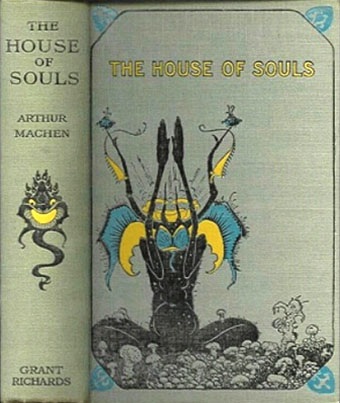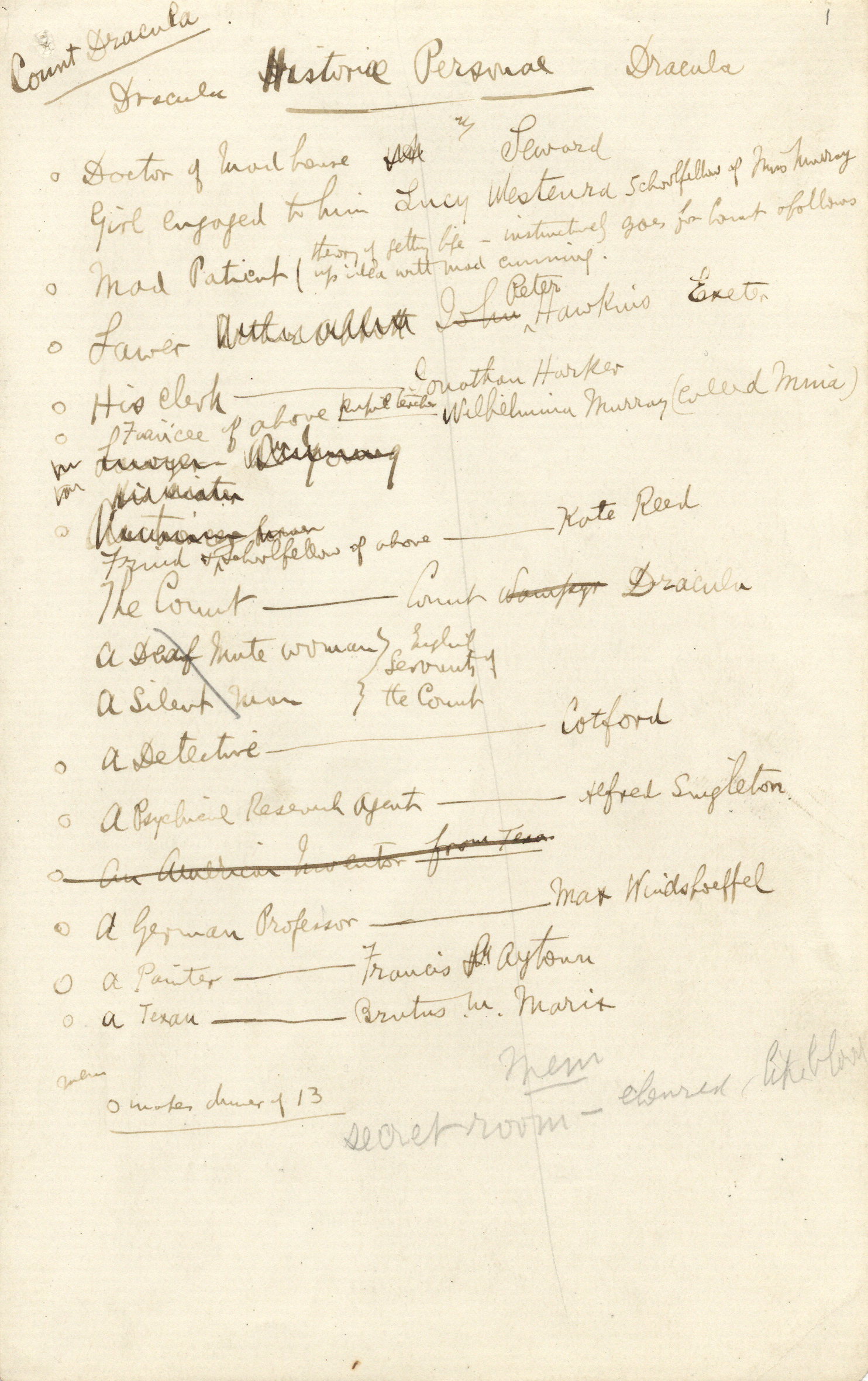|
Weird Fiction
Weird fiction is a subgenre of speculative fiction originating in the late 19th and early 20th centuries. Weird fiction either eschews or radically reinterprets traditional antagonists of supernatural horror fiction, such as ghosts, vampires, and werewolves. Writers on the subject of weird fiction, such as China Miéville, sometimes use "the tentacle" to represent this type of writing. The tentacle is a limb-type absent from most of the monsters of European Gothic fiction, but often attached to the monstrous creatures created by weird fiction writers, such as William Hope Hodgson, M. R. James, Clark Ashton Smith, and H. P. Lovecraft. Weird fiction often attempts to inspire awe as well as fear in response to its fictional creations, causing commentators like Miéville to paraphrase Goethe in saying that weird fiction evokes a sense of the numinous. Although "weird fiction" has been chiefly used as a historical description for works through the 1930s, it experienced a resur ... [...More Info...] [...Related Items...] OR: [Wikipedia] [Google] [Baidu] |
Speculative Fiction
Speculative fiction is an umbrella term, umbrella genre of fiction that encompasses all the subgenres that depart from Realism (arts), realism, or strictly imitating everyday reality, instead presenting fantastical, supernatural, futuristic, or other imaginative realms. This catch-all genre includes, but is not limited to: fantasy, science fiction, science fantasy, superhero fiction, superhero, paranormal fiction, paranormal, supernatural fiction, supernatural, horror fiction, horror, alternate history, magical realism, slipstream genre, slipstream, weird fiction, utopian and dystopian fiction, utopia and dystopia, apocalyptic and post-apocalyptic fiction. In other words, the genre speculates on individuals, events, or places beyond the ordinary real world. The term ''speculative fiction'' has been used for works of literature, film, Television show, television, drama, video games, Radio drama, radio, and hybrid media. Speculative versus realistic fiction The umbrella genre of ... [...More Info...] [...Related Items...] OR: [Wikipedia] [Google] [Baidu] |
Horror And Terror
The distinction between horror and terror is a standard literary and psychological concept applied especially to Gothic and horror fiction. ''Horror'' is the feeling of revulsion that usually follows a frightening sight, sound, or otherwise experience. By contrast, ''terror'' is usually described as the feeling of dread and anticipation that ''precedes'' the horrifying experience. Noël Carroll also defined terror as a combination of horror and revulsion. Literary Gothic The distinction between terror and horror was first characterized by the Gothic writer Ann Radcliffe (1764–1823), horror being more related to being shocked or scared (being horrified) at an awful realization or a deeply unpleasant occurrence, while terror is more related to being anxious or fearful. Radcliffe considered that terror is characterized by "obscurity" or indeterminacy in its treatment of potentially horrible events, something which leads to the sublime. She says in an essay published post ... [...More Info...] [...Related Items...] OR: [Wikipedia] [Google] [Baidu] |
Decadent Movement
The Decadent movement (from the French language, French ''décadence'', ) was a late 19th-century Art movement, artistic and literary movement, literary movement, centered in Western Europe, that followed an aesthetic ideology of excess and artificiality. The Decadent movement first flourished in France and then spread throughout Europe and to the United States. The movement was characterized by a belief in the superiority of Fantasy (psychology), human fantasy and Hedonism#Aesthetic hedonism, aesthetic hedonism over logic and the Nature, natural world. Overview The concept of decadence dates to the 18th century, especially from the writings of Montesquieu, the Age of Enlightenment, Enlightenment philosopher who suggested that the decline (''decadence, décadence'') of the Roman Empire was in large part due to its moral decay and loss of cultural standards. When Latin scholar Désiré Nisard turned toward French literature, he compared Victor Hugo and Romanticism in general to th ... [...More Info...] [...Related Items...] OR: [Wikipedia] [Google] [Baidu] |
Arthur Machen
Arthur Machen ( or ; 3 March 1863 – 15 December 1947) was the pen-name of Arthur Llewellyn Jones, a Welsh people, Welsh author and mysticism, mystic of the late 19th and early 20th centuries. He is best known for his influential supernatural fiction, supernatural, fantasy fiction, fantasy, and horror fiction. His novella ''The Great God Pan'' (1890; 1894) has garnered a reputation as a classic of horror, with Stephen King describing it as "Maybe the best [horror story] in the English language." He is also well known for "The Bowmen", a short story that was widely read as fact, creating the legend of the Angels of Mons. Biography Early years Machen was born Arthur Llewelyn Jones in Caerleon, Monmouthshire (historic), Monmouthshire. The house of his birth, opposite the Olde Bull Inn in The Square at Caerleon is marked with a commemorative blue plaque. The landscape of Monmouthshire (which he usually referred to by the name of the medieval Welsh kingdom, Kingdom of Gwent, Gwen ... [...More Info...] [...Related Items...] OR: [Wikipedia] [Google] [Baidu] |
Bram Stoker
Abraham Stoker (8 November 1847 – 20 April 1912), better known by his pen name Bram Stoker, was an Irish novelist who wrote the 1897 Gothic horror novel ''Dracula''. The book is widely considered a milestone in Vampire fiction, and one of the most famous classics of English literature. The primary antagonist of the novel, Count Dracula, is often ranked among the most iconic and best-known fictional figures of the entire Victorian era, and the character's popularity has led to over 700 adaptations for films, movies, plays, comics, video games, cartoons, stage performances, and other forms of media. Although he was the author of 12 mystery novels and novellas, Stoker's reputation as one of the most influential writers of Gothic horror fiction lies solely with ''Dracula''. During his life, he was better known as the personal assistant of the actor Sir Henry Irving and business manager of the West End's Lyceum Theatre, which Irving owned. Stoker was also a distant relative o ... [...More Info...] [...Related Items...] OR: [Wikipedia] [Google] [Baidu] |
Dracula
''Dracula'' is an 1897 Gothic fiction, Gothic horror fiction, horror novel by Irish author Bram Stoker. The narrative is Epistolary novel, related through letters, diary entries, and newspaper articles. It has no single protagonist and opens with solicitor Jonathan Harker taking a business trip to stay at the castle of a Transylvanian nobleman, Count Dracula. Harker flees after learning that Dracula is a vampire, and the Count moves to England and plagues the seaside town of Whitby. A small group, led by Abraham Van Helsing, hunts and kills him. The novel was mostly written in the 1890s, and Stoker produced over a hundred pages of notes, drawing extensively from Folklore of Romania, folklore and History of Romania, history. Scholars have suggested various figures as the inspiration for Dracula, including the Wallachian prince Vlad the Impaler and the Countess Elizabeth Báthory, but recent scholarship suggests otherwise. He probably found the name Dracula in Whitby's public l ... [...More Info...] [...Related Items...] OR: [Wikipedia] [Google] [Baidu] |
The Freeman's Journal
The ''Freeman's Journal'', which was published continuously in Dublin from 1763 to 1924, was in the nineteenth century Ireland's leading nationalist newspaper. History Patriot journal It was founded in 1763 by Charles Lucas and was identified with radical 18th-century Protestant patriot politicians Henry Grattan and Henry Flood. This changed from 1784 when it passed to Francis Higgins (better known as the "Sham Squire") and took a more unionist and pro-Dublin Castle administration view. Higgins is mentioned in the Secret Service Money Book as having been paid £1,000 for supplying information which led to Lord Edward FitzGerald's arrest. Voice of constitutional nationalism In the 19th century it became more nationalist in tone, particularly under the control and inspiration of Sir John Gray (1815–75). ''The Journal'', as it was widely known as, was the leading newspaper in Ireland throughout the 19th century. Contemporary sources record it being read to the largely il ... [...More Info...] [...Related Items...] OR: [Wikipedia] [Google] [Baidu] |
Walter Scott
Sir Walter Scott, 1st Baronet (15 August 1771 – 21 September 1832), was a Scottish novelist, poet and historian. Many of his works remain classics of European literature, European and Scottish literature, notably the novels ''Ivanhoe'' (1819), ''Rob Roy (novel), Rob Roy'' (1817), ''Waverley (novel), Waverley'' (1814), ''Old Mortality'' (1816), ''The Heart of Mid-Lothian'' (1818), and ''The Bride of Lammermoor'' (1819), along with the narrative poems ''Marmion (poem), Marmion'' (1808) and ''The Lady of the Lake (poem), The Lady of the Lake'' (1810). He had a major impact on European and American literature, American literature. As an advocate and legal administrator by profession, he combined writing and editing with his daily work as Clerk of Session and Sheriff court, Sheriff-Depute of Selkirkshire. He was prominent in Edinburgh's Tory (political faction), Tory establishment, active in the Royal Highland and Agricultural Society of Scotland, Highland Society, long time a p ... [...More Info...] [...Related Items...] OR: [Wikipedia] [Google] [Baidu] |
Sheridan Le Fanu
Joseph Thomas Sheridan Le Fanu (; 28 August 1814 – 7 February 1873), popularly known as J. S. Le Fanu, was an Irish writer of Gothic literature, mystery novels, and horror fiction. Considered by critics to be one of the greatest ghost story writers of the Victorian era, his works were central to the development of the genre during the late 19th and early 20th centuries. Sullivan, Jack, "Le Fanu, Sheridan". In Sullivan, ed., '' The Penguin Encyclopedia of Horror and the Supernatural (1986)''. New York: Viking. pp. 257–62. Le Fanu was a key figure in the dark romanticism movement, and M. R. James described him as "absolutely in the first rank as a writer of ghost stories".Briggs, Julia (1986). "James, M(ontague) R(hodes)". In Sullivan, Jack, ed. '' The Penguin Encyclopedia of Horror and the Supernatural''. New York: Viking. pp. 233–35. He is best remembered for the locked-room mystery '' Uncle Silas'' (1864), the historical novel '' The House by the Churchyard'' ( ... [...More Info...] [...Related Items...] OR: [Wikipedia] [Google] [Baidu] |






